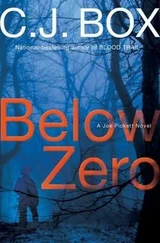It was the opening night reception for the Kootenai Bay Recreation Center, financed through his bank. He had been the principal officer for the project and was on the board of directors. The Rec Center had a full-size gymnasium, an Olympic-size pool, racquetball courts, aerobics and weight rooms, a climbing wall, sauna rooms, Jacuzzis. Although financed jointly by the bank, the city, and the county initially, enough charter memberships had been sold-primarily to newcomers to the valley-that first-year financial projections would be exceeded. It was the first facility of its kind built in the community, and over two hundred people were touring it, drinks in hand, talking excitedly, slapping him on the back.
Two of the bars were located in the gym, one under the rim of each basketball hoop on opposite ends of the floor. To disguise his intent, which was to become obliterated as clandestinely as possible, Hearne alternated bars each time he ordered a drink so the bartenders and guests wouldn’t notice how much he was drinking. As The Banker, he was always being watched, observed, talked about. It came with the territory, and he accepted it. But tonight, there was too much on his mind, too many problems, and a serious one he had to keep entirely to himself.
He circulated through the building, exchanging pleasantries, greeting old friends, welcoming new residents, most of whom were bank customers. He tried hard to remember names because they certainly knew him. If he didn’t know their names and couldn’t read name tags, he simply said, “Great to see you, thanks for coming,” and moved on. He tried not to be drawn into any conversations, most of which were about either the new facility or the missing Taylor children.
The sheriff had held a press conference in the afternoon that was televised on the local affiliates and excerpted nationally. Hearne had watched it nervously, always concerned how his community would be portrayed. He was pleasantly surprised how well the new sheriff presented himself, especially since the banker had not supported Carey in the election, thinking him pompous and unqualified. Carey stressed to the media that it was too early to draw any conclusions, that at this point it was a missing persons investigation, not kidnapping or worse. Carey seemed competent, in charge. Photos of the Taylor children were flashed on the screen along with a hot line number. He explained that he’d tapped the resources of a team of retired big-city police officials to assist him with the investigation. The performance was flawless. Hearne wondered who had coached him.
The makeup of the crowd at the center was interesting to him, and something he was getting used to. Three-quarters of the guests were newcomers to the area, having arrived in the last five years. The remaining quarter were from the area, mainly professional people. It was notable how the newcomers grouped together, and the locals did the same. In only a few instances did he see them mixing. The response to the new facility was different also, he noted. The locals were proud of it almost beyond words, their comments a mixture of awe and reverence, as if saying, “I can’t believe what we’ve done!” The newcomers, on the other hand, were happy with the new facility, but in a different way, as if finally they were receiving something they’d long deserved, something they were used to. As if they had taken another step forward in dragging the hidebound old-timers into the twenty-first century.
But Hearne had trouble mingling, spending much time in either group. As the banker he was sort of a host, so he constantly used that excuse to take his leave, as if pressing matters in another part of the facility pulled him away. His position at the bank and his long history as a resident of the valley gave him knowledge that ran deep. His familiarity with the residents and his customers was a huge asset to the bank, one of the reasons he continued to be promoted every time the institution changed hands. He often felt like the human bridge between the old and the new. His life was a balancing act between ingrained loyalties and newfound wealth, power, and status. But sometimes, like now, he felt he knew too much.
The fact was, Hearne couldn’t think of much else than the missing Taylor children and the meetings he had had that morning with Jess Rawlins and Eduardo Villatoro. They all disturbed him, but in different ways. They were moles in a mental Whack-A-Mole game: When he suppressed one the other popped up automatically, as if they were somehow interconnected in a way he couldn’t comprehend.
He approached a bar situated in the alcove to the swimming pool and ordered a fifth Scotch. As he sipped it, he looked out on the pool. The black lanes painted on the bottom wavered in the water more than they should. He would have to slow down. But he didn’t want to.
“What’s wrong with you?”
It was his wife, Laura. He hadn’t seen her approach.
“What do you mean?”
“I’ve been watching you,” she said. “You’ve been running around this place like a chicken with its head cut off. The only places you stop are the bars. Don’t think I haven’t noticed.”
He felt himself flush. Caught.
Laura was a plain-speaking, handsome woman, with strong features and all-seeing eyes. Her skin was dark from being outside so much, riding her horses, working at her stables. She was a horsewoman, a former barrel racer, from a third-generation Idaho family. Despite their rise in status within the community, Laura chose to dress in what was comfortable to her: Western shirts, jeans, sometimes a broomstick skirt and boots, like tonight. She was considered vivacious and home-grown by the locals, and Hearne still saw her that way. Only when she was in a big group of newcomers, with their fashion and trendy haircuts, did he realize how different she looked. He appreciated her sense of tradition, though, and admired how she was comfortable with who she was. Sometimes, though, he wished she would dress up a little, like tonight. Didn’t she notice? The thought made him instantly ashamed of himself.
“Are you okay?” she asked. “You seem just a tad distracted,” she said in a mischievous way. “My dad would have said you are jumping around like a fart in a skillet.”
Hearne almost blurted out his Whack-A-Mole analogy but caught himself. Mentioning it would open doors he wanted kept shut.
“I keep thinking about those Taylor kids,” he said, which was true but only part of the reason. “That isn’t the kind of thing that happens here.”
“Maybe it didn’t used to,” she said, then gestured toward the crowd. “Before the immigration and all of your new friends.”
He smiled sourly. It was a point of contention between them. Laura would have been fine if the valley had remained the way it was when she grew up, small, intimate, rural, eccentric.
“My ‘new friends,’ as you call them, helped buy your last three horses and the new barn,” he said.
“I know. Boy, you are testy tonight.”
He looked away, wishing he hadn’t said that.
“You had better slow down,” she said, nodding toward his glass. “I don’t want you falling into the pool in front of all of your…customers.”
“I will.”
“And, Mr. Jim Hearne, don’t play coy with me,” she said, leaning into him, staring up into his eyes. “I know you. You drink when you’re worried, or fretting about something. It never helps, but it’s what you do.”
“I said…”
“Right, the Taylors,” she said dismissively.
“Really.”
She asked, “Which Taylor are you most worried about? The kids or Monica?”
Hearne felt his neck get hot. Laura had never liked Monica Taylor and harbored suspicions about her. Hearne felt defensive whenever Monica was brought up, even though he had explained the situation to Laura more than once. He had told Laura Monica thought of him as a father figure because of his friendship with her father. Laura had raised her eyebrows, and asked, “Is that all?” He stammered, said, “Of course. You know what happened.”
Читать дальше












